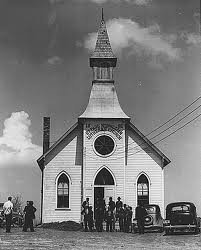
Arizona Church records certainly are a exceptional resource for the genealogical and historical researcher. In many parts of Arizona, church records predate civil records. They consequently document vital occasions, supplying birth, marriage, and death information which may often be lost. Aside from supplying names and dates, church records may reveal associations between people and depict a family’s standing in the community. In addition, records of a personal nature are not unusual, and these may offer a view into an ancestor’s identity or behaviors.
Previous to Arizona County and city governments compiled vital records, many people documented crucial times, events, and names in their family Bible. Family Bibles are valuable research tools. Even though the dates are not guaranteed, Family Bibles are a tangible link with past generations.
The Roman Catholic Church is the largest denomination in Arizona and has also been in the area for the longest length of time. The Spanish tried to create missions in the area, but were unsuccessful until the mid-1800s. Both the Jesuits and later the Franciscans came to the area, but soon lost their footholds. The Mexican Act of Secularization disbanded missions in 1833. Only some of the historical records and vital records from those sources still exist today. These days, the Diocese of Tucson and the Diocese of Phoenix are the two primary dioceses in the state of Arizona.
The Mormons are the second largest religious group in Arizona. Their Church of Jesus Christ of Latter-day Saints branches have recorded many records over the years. They first started out as missionaries to the Native Americans from Utah, but later established permanent settlements in Arizona, in 1877. The FHL has all of the genealogical records, mission reports, and congregation records for the Mormon groups in the state on file. The Mesa Family History Center, which is operated directly by the Church of Jesus Christ of Latter-day Saints, is located right on the grounds of the Mesa Temple. It is one of Arizona’s biggest genealogical libraries.
The Episcopal Diocese of Arizona runs the Episcopal churches in the state. Episcopalian missionaries first came to the state in 1865, when Nevada and Arizona were considered to be part of the same missionary jurisdiction. Arizona became its own separate entity in 1874. The website for the diocese is an excellent resource for locating the contact information for each of the state’s parishes.
The Desert Southwest District handles the United Methodist Church presence in Arizona. Their website, www.desertsw.org, is an excellent starting resource for those looking for genealogical records relating to the United Methodist Church.
Arizona has had a strong Jewish presence for a long time. The cultural, economic, social, and political history of the Jewish people in Arizona is well-documented by the Arizona Jewish Historical Society. The state is also home to other collections of Jewish historical documents. For example, the University of Arizona Library in Tuscon is home to the Leona G. and David A. Bloom Southwest Jewish Archives. That collection houses records relating to Jews in Southern California, New Mexico, and West Texas, as well as Arizona. The Rochlia Collection of Arizona Jewish History is located at Arizona State University. It contains historical materials and oral interviews. Shema Arizona: The Arizona Jewish Historical Society Oral History Project is housed at Arizona State University.
Arizona Church and Bible Links
- Arizona Church Books (amazon.com)
- Arizona Bible Books (amazon.com)
